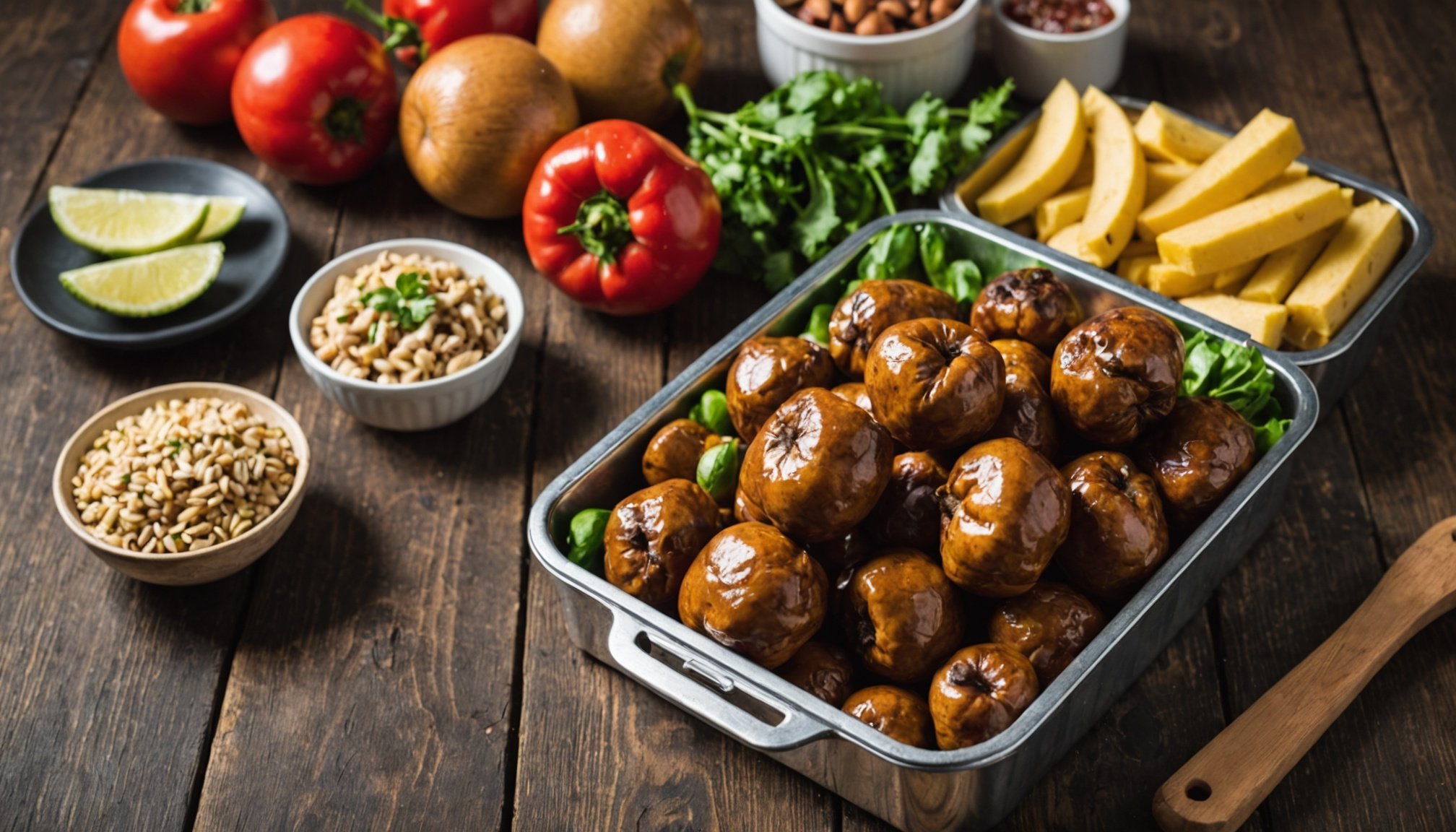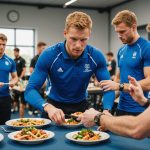Ultimate Guide to Off-Season Nutrition: Key Dietary Tips for UK Boxers
Understanding the Importance of Nutrition in Boxing
When it comes to boxing, nutrition is just as crucial as the training itself. A well-planned diet can make the difference between a boxer who performs at their best and one who struggles to keep up. During the off-season, nutrition plays a critical role in maintaining and improving overall health, body composition, and athletic performance.
The Role of Nutrition in Boxing Training
Nutrition is the fuel that powers your training sessions. Whether you’re engaging in intense shadow boxing, sparring, or strength training, your body needs the right nutrients to recover, build muscle, and maintain energy levels.
Also to see : Achieving equity in the ring: effective tactics for uk combat sports referees to deliver precise judgments
“Nutrition is the foundation of any successful training program. Without the right foods, you can’t expect to perform at your best or recover adequately,” says Enoch Effah, a triple world champion in boxing and fitness coach[2].
Creating a Balanced Diet Plan
A balanced diet for a boxer should include a mix of proteins, carbohydrates, and healthy fats. Here’s a breakdown of what each component should look like:
This might interest you : Achieving equity in the ring: effective tactics for uk combat sports referees to deliver precise judgments
Proteins: The Building Blocks of Muscle
Proteins are essential for muscle repair and growth. Boxers need a significant amount of protein to recover from intense training sessions and to build and maintain muscle mass.
- Sources of Protein:
- Lean meats like chicken and turkey
- Fish and seafood
- Eggs
- Legumes and beans
- Dairy products like milk and yogurt
- Plant-based options like tofu and tempeh
Carbohydrates: The Energy Providers
Carbohydrates are the primary source of energy for boxers. They help fuel your training sessions and aid in recovery.
- Sources of Carbohydrates:
- Whole grains like brown rice, quinoa, and whole wheat bread
- Fruits and vegetables
- Legumes
- Potatoes and sweet potatoes
Healthy Fats: The Unsung Heroes
Healthy fats are crucial for hormone production, brain function, and the absorption of vitamins and minerals.
- Sources of Healthy Fats:
- Nuts and seeds
- Avocados
- Olive oil
- Fatty fish like salmon
Sample Meal Plan for a Boxer
Here’s an example of what a typical day’s meals might look like for a boxer:
Breakfast
- Oatmeal with fruits and nuts
- Scrambled eggs with whole wheat toast
- Greek yogurt with berries and honey
Lunch
- Grilled chicken breast with quinoa and mixed vegetables
- Whole grain sandwich with lean turkey, avocado, and lettuce
- Lentil soup with whole grain bread
Dinner
- Grilled salmon with sweet potatoes and steamed broccoli
- Chicken stir-fry with brown rice and mixed vegetables
- Beef and vegetable stew with whole grain bread
Snacks
- Fresh fruits and nuts
- Protein shakes or smoothies
- Energy bars made from wholesome ingredients
Managing Weight and Body Fat
For boxers, managing weight and body fat is a constant challenge, especially during the off-season.
Cutting Weight vs. Maintaining Weight
Cutting weight is a common practice in boxing, but it should be done carefully to avoid compromising performance and health.
-
Cutting Weight:
-
Reduce calorie intake gradually to avoid muscle loss.
-
Increase water intake to help with weight loss.
-
Avoid processed foods and bad fats.
-
Incorporate high-intensity interval training (HIIT) to burn fat efficiently.
-
Maintaining Weight:
-
Ensure a balanced diet that meets your energy expenditure.
-
Monitor your macronutrient intake to maintain muscle mass.
-
Stay hydrated to avoid water retention.
Avoiding Processed and High-Fat Foods
Processed and high-fat foods can hinder athletic performance and weight management.
Why Avoid Processed Foods?
- Lack of Nutrients: Processed foods are often devoid of essential vitamins, minerals, and fiber.
- High in Bad Fats: Processed foods are typically high in unhealthy fats that can lead to weight gain and decreased performance.
- Energy Crash: Processed foods can cause an energy crash, making it difficult to perform during training sessions.
Examples of Foods to Avoid:
- Fried foods
- Sugary snacks
- Processed meats
- High-sugar drinks
Hydration and Electrolytes
Hydration is crucial for boxers, especially during intense training sessions.
Importance of Hydration:
- Performance: Proper hydration improves athletic performance by maintaining energy levels and aiding in recovery.
- Health: Dehydration can lead to serious health issues, including heat stroke and muscle cramps.
Electrolytes:
- Role in Hydration: Electrolytes like sodium, potassium, and magnesium help regulate fluid balance in the body.
- Sources of Electrolytes:
- Bananas (potassium)
- Avocados (potassium)
- Nuts and seeds (magnesium)
- Coconut water (sodium and potassium)
Supplements and Additional Nutrients
While a balanced diet should be the primary source of nutrients, some supplements can help fill any gaps.
Protein Supplements:
- Whey Protein: Helps with muscle recovery and growth.
- Plant-Based Proteins: Options like pea and rice protein for those following a plant-based diet.
Vitamins and Minerals:
- Multivitamins: Ensure you’re getting all the essential vitamins and minerals.
- Omega-3 Fatty Acids: Supports heart health and reduces inflammation.
Practical Tips for Boxers
Here are some practical tips to help you stick to your diet plan:
Meal Planning:
- Plan your meals in advance to avoid last-minute unhealthy choices.
- Cook meals in bulk to save time.
Portion Control:
- Use a food scale or measuring cups to ensure you’re eating the right portions.
- Eat slowly and stop when you feel satisfied, not full.
Snacking:
- Keep healthy snacks handy to avoid reaching for processed foods.
- Choose snacks that are high in protein and fiber.
Nutrition is a critical component of a boxer’s training regimen. By focusing on a balanced diet that includes proteins, carbohydrates, and healthy fats, boxers can optimize their performance, manage their weight effectively, and ensure they are always ready for the next challenge.
“Nutrition is not just about what you eat; it’s about how you fuel your body for optimal performance. A good diet plan can make all the difference in your training and recovery,” advises Bérengère Philippon, a nutrition coach[2].
Table: Sample Daily Nutrient Intake for a Boxer
| Nutrient | Daily Intake | Food Sources |
|---|---|---|
| Protein | 1.6-2.2 grams/kg body weight | Lean meats, fish, eggs, dairy, legumes, tofu |
| Carbohydrates | 2-3 grams/kg body weight | Whole grains, fruits, vegetables, legumes |
| Healthy Fats | 0.5-1 gram/kg body weight | Nuts, seeds, avocados, olive oil, fatty fish |
| Fiber | 25-30 grams | Whole grains, fruits, vegetables, legumes |
| Water | 8-10 glasses | Water, electrolyte-rich drinks |
| Electrolytes | Varies | Bananas, avocados, nuts, seeds, coconut water |
| Vitamins and Minerals | Varies | Multivitamins, omega-3 fatty acids, whole foods |
Detailed Bullet Point List: Foods to Include and Avoid
Foods to Include:
- Lean Proteins:
- Chicken breast
- Turkey breast
- Fish and seafood
- Eggs
- Legumes and beans
- Dairy products
- Tofu and tempeh
- Whole Grains:
- Brown rice
- Quinoa
- Whole wheat bread
- Oats
- Fruits and Vegetables:
- Apples
- Bananas
- Broccoli
- Spinach
- Healthy Fats:
- Nuts and seeds
- Avocados
- Olive oil
- Fatty fish
- Electrolyte-Rich Foods:
- Bananas
- Avocados
- Nuts and seeds
- Coconut water
Foods to Avoid:
- Processed Meats:
- Hot dogs
- Sausages
- Bacon
- Fried Foods:
- French fries
- Fried chicken
- Doughnuts
- High-Sugar Foods:
- Sugary snacks
- High-sugar drinks
- Baked goods
- Bad Fats:
- Partially hydrogenated oils
- Fried foods
- Processed snacks
By following these guidelines and tips, UK boxers can ensure they are fueling their bodies for optimal performance, both in and out of the ring. Remember, a good diet is not just about what you eat, but how you eat it, and how it helps you achieve your athletic goals.










